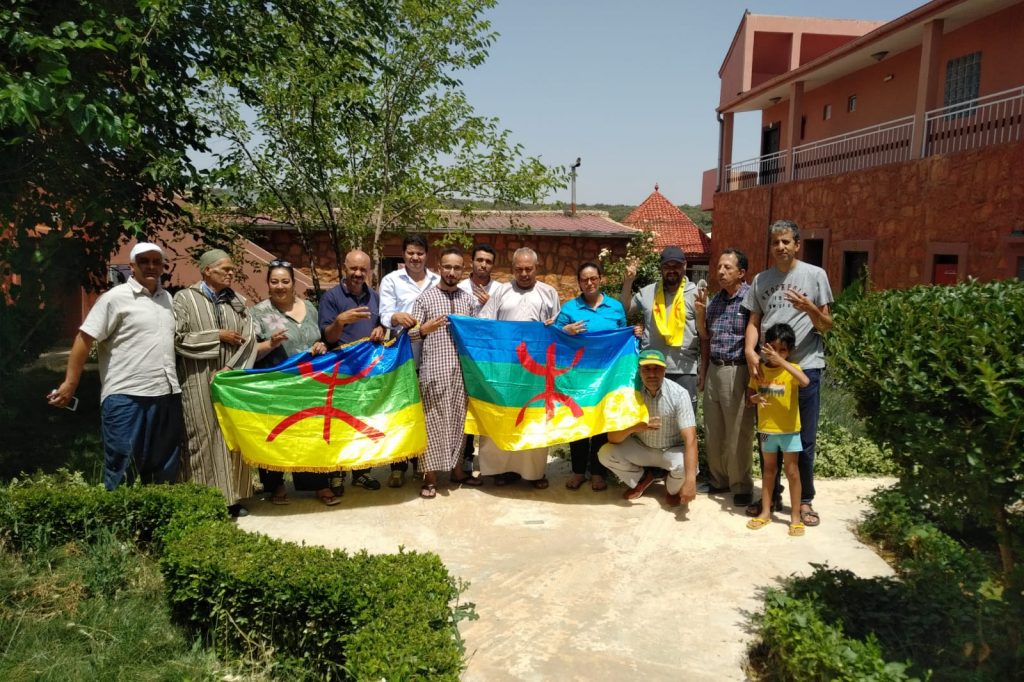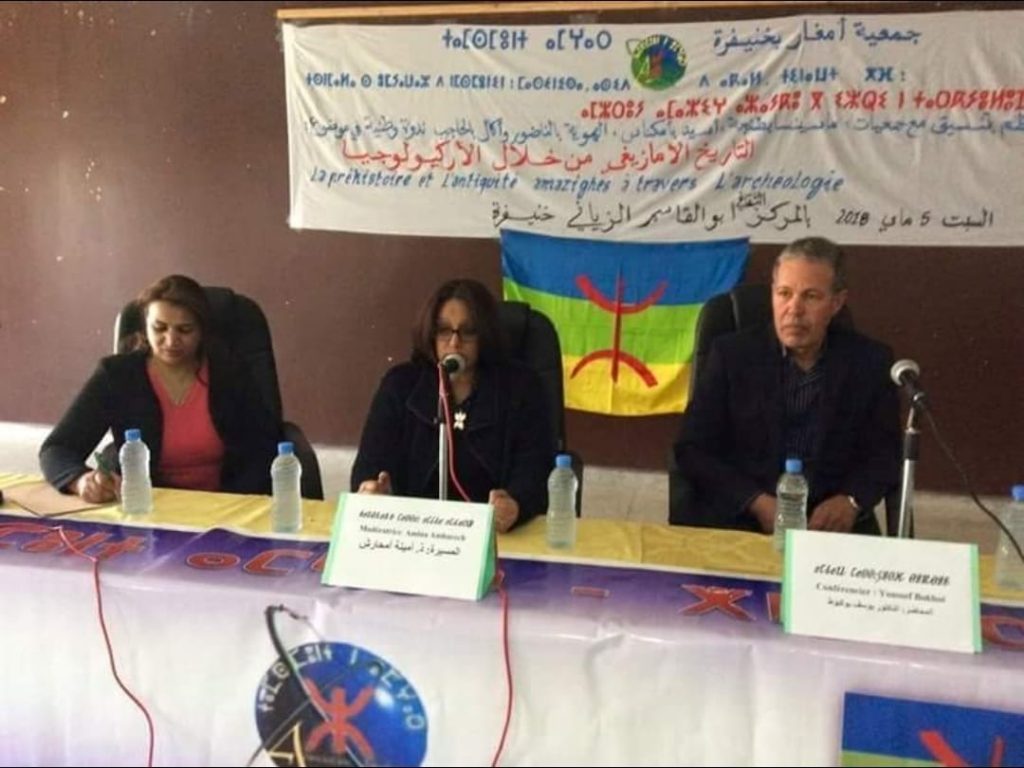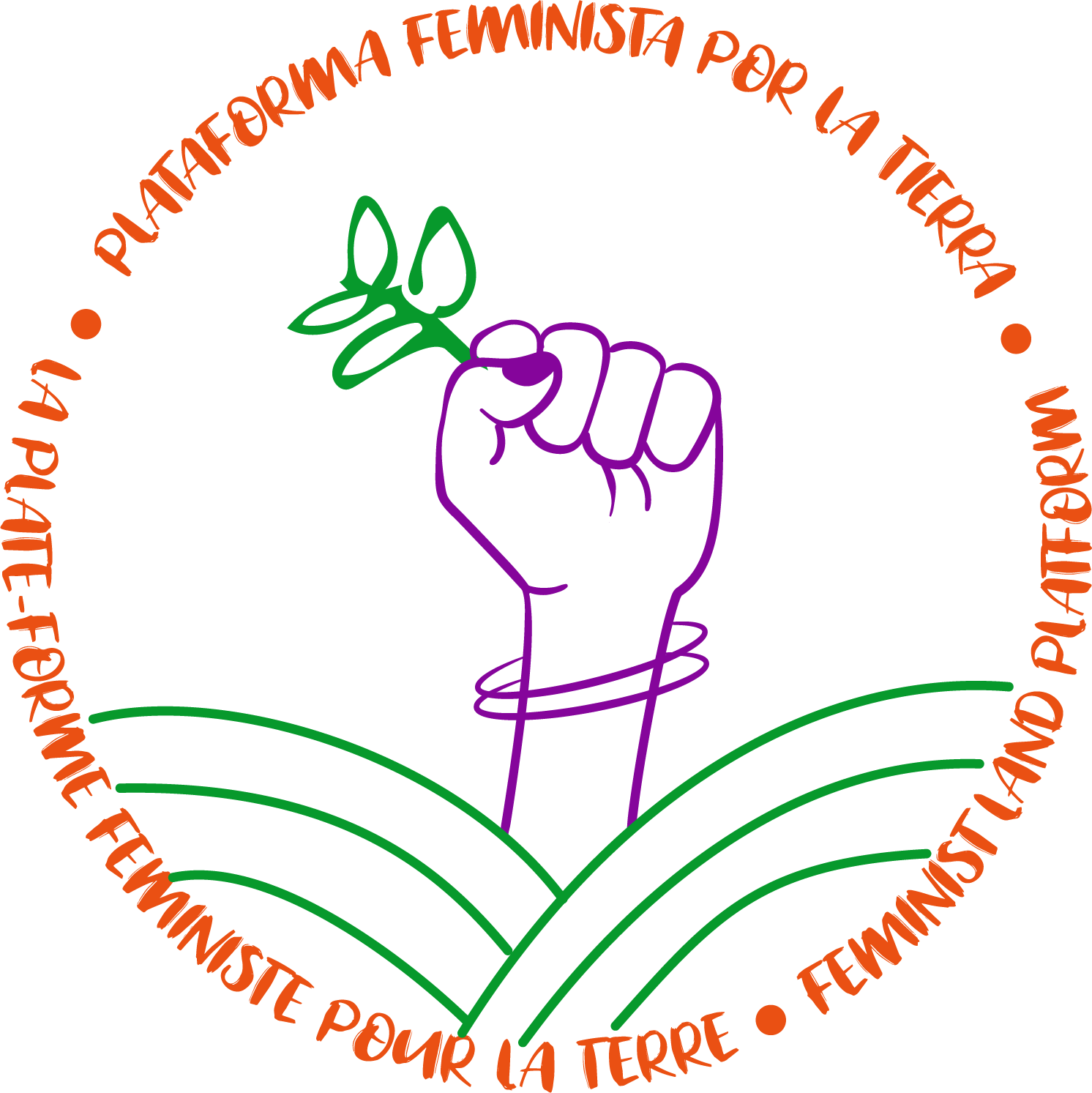“Application to collect cases of spoliation” is a practice developed by Meriem Bentarjem and Dr. Soraya El Kahlaoui, co-founder of the Traab project platform, in partnership with the organization Azul (Morocco), one of the members of the Feminist Land Platform (FLP).
AZUL works towards giving back to the Amazigh (indigenous peoples of Morocco and North Africa) their status as full citizens, as opposed to their present lack of decision-making power or sovereignty over their tangible or intangible heritage.
Its mission is to sensitize and mobilize the population to better face the problems related to land, natural resources, socio-economic inequalities, and the destruction of ecosystem and their consequences on the individual and the community.
FLP recently mapped some of the best resilience practices of our members so that other communities and organizations can learn and adapt tools and strategies to their local realities. In this article we’ll talk about one of the inspiring practices developed in Morocco by AZUL.
This is part of a series of articles detailing the best practices of each FLP organization. Check out our blog to read about all of them!

Application to collect cases of spoliation
This practice started in April 2022 and is being developed in all the Moroccan territory and some regions of Tunisia where there are problems of spoliation and expropriations.
It will benefit Amazigh/Indigenous Peoples throughout Morocco and all victim communities of land expropriation. Women represent a considerable part of the rights holders of collective lands, referred to as Soulaliyates.
The region of Morocco and North Africa was mostly colonized by France, which has implemented laws that states continue to apply to dispossess indigenous peoples of their lands, territories, and natural resources.
For centuries, the Amazigh have developed several practices essentially related to land (agriculture), territories (livestock and transhumance), and natural resources, since the activities depend essentially on the specificities and availability of resources and in a concern for adaptation and protection of ecosystems and biodiversity.
The space emplacement of the Amazigh conditions their way of life, their culture and gives them their ancestral identity. Dispossessing the Amazigh of their land amounts to tearing them away from their territory and forcing them to migrate elsewhere, just as confiscating their rights to their resources keeps them in precariousness without the possibilities for improvements. This puts them in vulnerable conditions and makes them easily assimilated.
Indigenous communities in rural areas are particularly targeted by the privatization of land and its resources. Similarly, marginalized urban communities living in slums and peri-urban lands are also subject to eviction procedures.
“The proliferation of fraudulent acts and illegal activities is such that there is what is commonly referred to as a ‘Land Mafia’ rampant in all regions of Morocco aimed at monopolizing land to the detriment of the rightful owners. This plundering finds fertile ground in legislation, impunity, power games, the fragility of communities, the inefficiency of the courts, the connivance of magistrates, and agricultural policy, all of which mean that law and justice no longer have a place, especially in matters of land, either for communities or for women, the last link in a weakened chain”, explains Amina Amharech, a founding member of AZUL.
According to her, the main difficulty today lies in the absence of a database that could list all cases of actual dispossession to establish an exhaustive mapping of the extent of the problem – which is why this practice came into play.

How the project works
This project has the goal of collecting information on land conflicts to identify the communities impacted, drawing a comprehensive mapping of the issue, and raising the voices of dispossessed communities.
Through the practice of “counter-mapping”, it aims to map land conflicts in North Africa, and mainly in Morocco and Tunisia, creating an open-source web platform combining interactive mapping and storytelling. The project is also based on the development of an application to offer an open-source data collection tool.
It has two components:
- Mapping land conflicts: It is expected that about 50 communities will benefit from a visibility of their claims via the web platform.
- The app: Members of the Amazigh AZUL community network will be trained to use the app to collect data on land conflicts.
It should be noted that particular attention will be paid to the issue of women, who are the most impacted social group in any process of discrimination and marginalization, and particularly in terms of access to property and land.
Women rarely receive compensation in the event of land transfer, often find themselves without an offer of rehousing, and are excluded from the negotiations. The project will ensure that the issue of gender equity is represented in the mapping of land conflicts and will focus on the gender approach to build alternatives.
Thanks to the application, a reliable database and accurate mapping, women’s voices will be more audible and the impact of the denial of their rights will be more visible. This is an essential step to change the laws and effectively support the demands of women at different levels, thus also benefiting the entire FLP network.
It is also important to notice that the results of this project will strengthen other good practice of Azul such as advocacy at the international level for the recognition of the rights of Amazighs as indigenous people and a call for an overhaul of land laws.
The opportunity of developing a second phase of this project will allow AZUL to test and train communities in the data collection application. To this end, training workshops will be organized with different communities. Particular attention will be given to the training of women researchers.
Azul collaborates with Dr. Soraya El Kahlaoui (Marie Skłodowska-Curie fellow), main investigator of the Traab project and its project partners, including Ghent University.
To further understand the issues faced by Amazigh people, read this article by Amina Amharech on IWGIA’s website.
